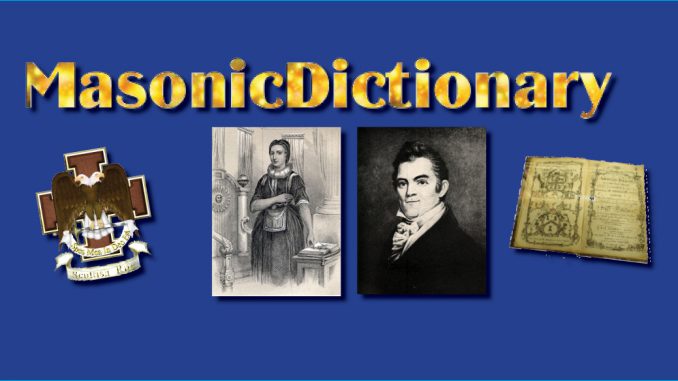
Papal Bull
An edict or proclamation issued from the Apostolic Chancery, with the seal and signature of the Pope, written in Gothic letters and upon coarse parchment. This derives its name from the leaden seal which is attached to it by a cord of hemp or silk, and which in Medieval Latin is called bulla. Several of these Bu1ls have from time to time been aimed against Freemasonry and other secret societies, subjecting them to the heaviest ecclesiastical punishments, even to the greater excommunication. According to these Bulls, a Freemason is by reason of that fact excommunicated by continuing his membership in the Society, and is thus deprived of all spiritual privileges while living, and the rites of burial when dead.
The several important Bulls which have been issued by the Popes of Rome intended to affect the Fraternity of Freemasons are as follows: the Bull In Eminenti of Clement XII, dated 24th of April, 1738. This Bull was confirmed and renewed by that beginning Providas, of Benedict XIV, 18th of May, 1751; then followed the edict of Pius VII, 13th of September, 1821; the apostolic edict Quo Graviora of Leo XII, 13th of March, 1825 ; that of Pius VIII, 21st of May, 1829 ; that of Gregory XVI, 15th of August, 1832; Pius IX in 1846 and 1865; and finally that of Leo XIII, who ascended to the papacy in 1878, and issued his Bull, or encyclical letter, Humanum Genus, on April 20, 1884. Whatever may have been the severity of the Bulls issued by the predecessors of Leo XIII, he with great clearness ratifies and confirms them all in the following language: “Therefore, whatsoever the popes our predecessors have decreed to hinder the designs and attempts of the sect of Freemasons ; whatsoever they have ordained to deter or recall persons from societies of this kind, each and all do we ratify and conform by our Apostolic authority,” at the same time acknowledging that this “society of men are most widely spread and firmly established.”
This letter of the Roman hierarchy thus commences : “The human race, after its most miserable defection, through the wiles of the devil, from its Creator, God, the giver of celestial gifts, has divided into two different and opposite factions, of which one fights ever for truth and virtue, the other for their opposites.
One is the kingdom of God on earth . . , the other is the kingdom of Satan.”
That, “by accepting any that present themselves, no matter of what religion, they (the Freemasons) gain their purpose of urging that great error of the present day, viz., that questions of religion ought to be left undetermined, and that there should be no distinction made between varieties. And this policy aims at the destruction of all religions, especially at that of the Catholic religion, which, since it is the only true one, cannot be reduced to equality with the rest without the greatest injury.”
“But, in truth, the sect grants great license to its initiates, allowing them to defend either position, that there is a God, or that there is no God.”
Thus might we quote continuous passages, which need only to be stated to proclaim their falsity, and yet there are those who hold to the doctrine of the infallibility of the Pope.
– Source: Mackey’s Encyclopedia of Freemasonry
